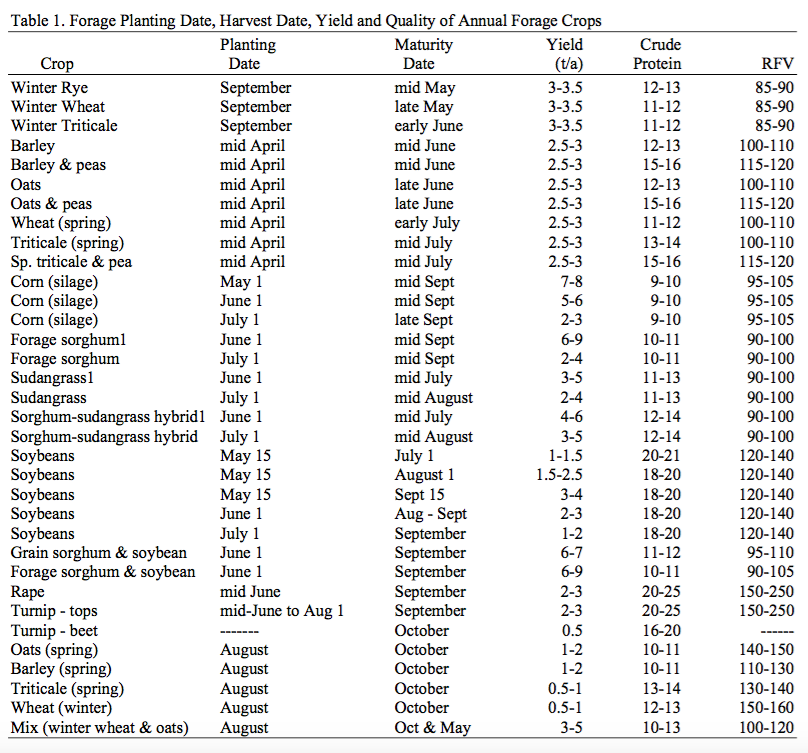NOW OPEN 8-12 ON SATURDAYS, FEB - OCT | SMALL GRAINS AND FORAGES CONFERERENCE: FEB 19 LEARN MORE
800.352.5247
- Seed Finder
- About
- Resources
- Find a Dealer
- Blue River Organic
- Viking Non-GMO
- Login
NOW OPEN 8-12 ON SATURDAYS, FEB - OCT | SMALL GRAINS AND FORAGES CONFERERENCE: FEB 19 LEARN MORE
| Species Name | Drilled | Broadcast/Aerial | In Mix | Approx. Seeds/lb | Seeding Date Range | Seeding Depth | Winter Kill |
|---|---|---|---|---|---|---|---|
| Hybrid Grain Sorghum (Milo) | |||||||
| Max Italian Ryegrass | 15-20 | 25-30 | 4-5 | 227,000 | March-May, Aug-Sept | ¼ - ½ inch | Yes |
| Piper Sudangrass | |||||||
| Japanese Millet | 25-35 | 32-50 | 5-15 | 145,000 | Late May-July | ½ - 1 inch | |
| German Foxtail Millet | |||||||
| Proso Millet | 20-30 | 30-45 | 5-15 | 80,000 | Late May-July | ½ - 1 inch | |
| Grain Sorghum - Open-Pollinated | |||||||
| Winter Rye | 50-100 | 120150 | 25-75 | 18,000 | Aug-Nov | ½ - ¾ inch | No |
| Annual Ryegrass | 15-20 | 25-30 | 5-10 | 18,000 | Mid May-Early July | ¼ - ½ inch | Yes |
| Winter Triticale | 30-100 | 60-120 | 15-40 | 15,000 | Aug-Early Oct | ½ - 1 ½ inches |
Best Use: Human food market, livestock feed, food source and bedding habitat for wildlife.
Adaptation: Cool temperatures limit feed grain production for livestock in the Upper Midwest. Prefers slightly warmer temps than corn.
Management: Requires nitrogen fertility (up to 150 lbs N per year). Manage potential for prussic acid & nitrate build-up.
Planting Date: Late May to early July (soil at 62°F+)
Seeding: Drill 5-15 lbs/acre ½” to 1½” deep. Use high end of rate for broadcasting.


Have you used this product? Let us know what you think.